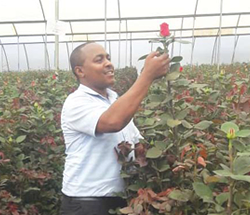
1. What experiences led you into agronomy, take us through the journey and your current role with Bayer East Africa, What do you enjoy most about working with farmers?
Agronomy started in my childhood since farming was the only way of living in our society where I was growing up. This led up me to pursuing a bachelor’s degree in Horticulture at JKUAT and started my career at Technoserve impacting growers with GAP knowledge. One thing led to the other and I found myself in Bayer as a technical assistant in horticulture sector and later joined the floriculture industry where I have grown through for 10 year to my current role of leading Floriculture and Export vegetables sector in Kenya. Farmers are the most patient people you will ever find, and out of this you can learn a lot from them. That’s why I enjoy working with the farmer.

 This Valentine’s Day many people bought flowers for their significant other without a lot of thought as to where those flowers came from. International trade, however, has a huge part to play in keeping the UK’s florists stocked with fresh cut flowers.
This Valentine’s Day many people bought flowers for their significant other without a lot of thought as to where those flowers came from. International trade, however, has a huge part to play in keeping the UK’s florists stocked with fresh cut flowers.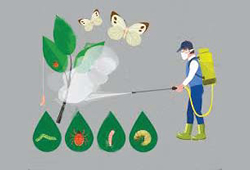 If it is possible to learn from the mistakes of others, a moment has come for our parliamentary committees and the Ministry of Agriculture to take a good look at Sri Lanka. For, what better way to implement great policies than by seeing their impact beforehand?
If it is possible to learn from the mistakes of others, a moment has come for our parliamentary committees and the Ministry of Agriculture to take a good look at Sri Lanka. For, what better way to implement great policies than by seeing their impact beforehand?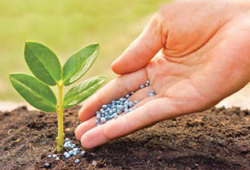
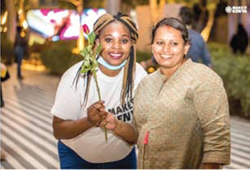 Kenya prides herself of a blooming flower sector and partnered with fourteen (14) pavilions at Expo 2020 Dubai to distribute one million branded red roses this Valentine’s Day as the world celebrated love the Kenyan way: “From Kenya with love.”
Kenya prides herself of a blooming flower sector and partnered with fourteen (14) pavilions at Expo 2020 Dubai to distribute one million branded red roses this Valentine’s Day as the world celebrated love the Kenyan way: “From Kenya with love.”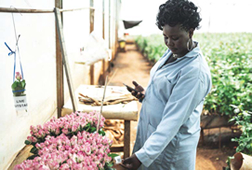

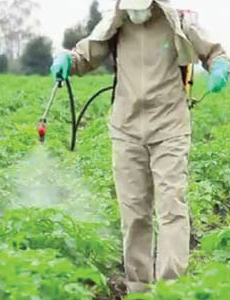 Pesticide resistance can become a problem when the same chemicals are used over and over to control a particular pest. After a period, the pest may develop resistance to a chemical so that the chemical no longer effectively controls the pest at the same rate, and higher rates and more frequent applications become necessary until eventually the chemical provides little or no control.
Pesticide resistance can become a problem when the same chemicals are used over and over to control a particular pest. After a period, the pest may develop resistance to a chemical so that the chemical no longer effectively controls the pest at the same rate, and higher rates and more frequent applications become necessary until eventually the chemical provides little or no control.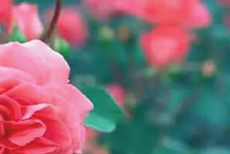 Plant nutrition is the study of the chemical elements and compounds necessary for plant growth, plant metabolism and their external supply. Without proper plant nutrition, plants tend to die off or produce little or no yield.
Plant nutrition is the study of the chemical elements and compounds necessary for plant growth, plant metabolism and their external supply. Without proper plant nutrition, plants tend to die off or produce little or no yield.